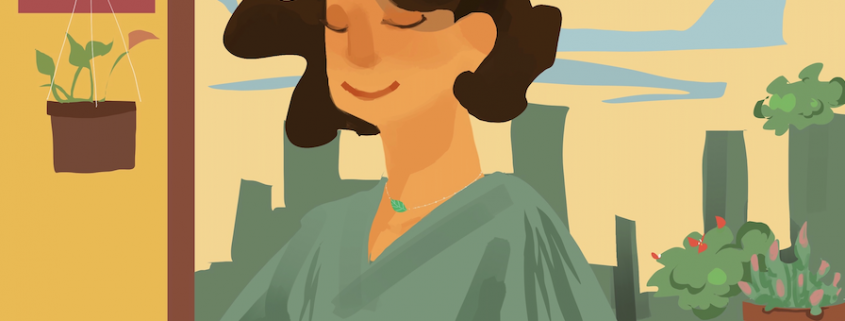OPINION: One day a year is not nearly enough to make a difference

Every April 22, people celebrate our planet. This perfect rock is an Eden for life, combining just the right amount of different elements needed to support life as we know it. It’s not too hot, not too cold — it’s the “Goldilocks Zone.”
In 1970, at the height of the counterculture movement, a senator from Wisconsin started Earth Day after witnessing the 1969 oil spill in Santa Barbara. Sen. Gaylord Nelson was inspired by the student-led anti-war movement at the time, and he thought that same energy could be used to teach people about environmental concerns.
He convinced conservative Congressman Pete McCloskey to serve as his co-chair and recruited a Harvard graduate student named Denis Hayes. They decided April 22 would be the prime date for the holiday — it fell between spring break and final exams, so students nationwide would be on campus.
According to Earth Day’s official website, 20 million people took to the streets that first Earth Day. By the end of 1970, the Environmental Protection Agency had been formed and the Clean Air, Clean Water and Endangered Species Acts had all been passed.
In 1990, Earth Day went global, with 141 countries and 200 million people worldwide celebrating their shared planet.
Earth wasn’t doing too well in 1970 — pesticides were killing birds, soot piled white birds black with gunk, smog was suffocating — and it’s not much better off today. While there have been major environmental achievements, like drastically improving air quality in Los Angeles and creating safer water sources in some parts of the world, this planet is in major trouble.
This year’s Earth Day theme is “Protect Our Species,” and rightly so with multiple species going extinct each day, some of them before we even have the chance to learn about them.
“Normally, between one and five species will go extinct annually,” an Earth Day fact sheet reads. “However, scientists estimate that we are now losing species at 1,000 to 10,000 times the normal rate.”
The fact sheet only gets more depressing as you read on. Insect populations have decreased by 75% in Germany, and 75% of primates species, humans’ closest relatives, are in decline. More than 650,000 marine mammals are caught in industrialized fishing gear each year. One in eight bird species is threatened with global extinction. Many of the world’s big cats, like tigers, leopards and cheetahs, have high probabilities of going extinct in the next decade. And the list goes on.
A study published in 2006 in the journal Science predicts that, if we do not slow commercial fishing, all of the world’s fisheries will have collapsed by 2048.
If humans continue living disposable lifestyles and disregarding their long-term impact on this fragile, beautiful planet, it will spell disaster. In 2018, the International Panel on Climate Change announced the world’s population only has 12 years left to dramatically change its habits to curb the effects of climate change.
The planet is already warming, and the effects are already visible.Uncontrollable wildfires. Deadly hurricanes. Shifting weather patterns and rising sea levels make these already destructive natural disasters even more threatening.
Earth Day was created to raise awareness of the way people interact with the environment. It has done great things in its 49 years. But one day is simply not enough to adequately consider negativity of human action on the environment.
Humanity cannot survive without Earth. People are currently threatening the “just right” conditions for life every day.
Try not to use plastic on Earth Day, walk instead of driving or don’t eat meat. Why not try these small actions multiple days a week? Learn about a state representative’s stance on climate change and policy and call them. Let them know this matters. Be that annoying friend who has fun facts about the environment, and not-so-fun facts about how human actions are irreversibly damaging the environment.
Climate change is the single most important issue of the century. Humans need to band together and work to change their habit to help change society and stop this life-threatening, man-made disaster.

